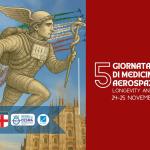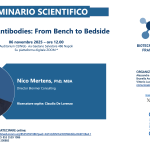
Harm Kampinga -Heat Shock Proteins
Il 23 ottobre, alle ore 14.30, presso l’Auditorium CEINGE, Harm H. Kampinga terrà un seminario dal titolo “Heat Shock Proteins, impaired protein homeostasis and protein aggregation diseases”.
Kampinga è biologo-ricercatore presso l’Università di Groningen (Paesi Bassi), Head of the Dept. Biomedical Sciences of Cells & Systems.
Ricercatore Ospitante: Caterina Missero -CEINGE - Biotecnologie Avanzate
Research Profile
Harm Kampinga graduated in Biology at the University of Groningen in 1984 and received my PhD in 1989 in Groningen. After being assistant – and associated professor in Radiation Oncology, he became full professor in the Department of Cell Biology in 2001 and became head of this Department in 2015.
The central theme of his research has always been related to the consequences of protein un- or misfolding on cellular functions. Initially, his work was centered around the biological effects of heat shock on cells in relation to the use of hyperthermia in combination with radiation or/and chemotherapy in cancer treatments. During these studies, Kampinga became interested in Heat Shock Proteins (HSP) that could protect cells from the cell biological effects of heat shock and focused my research on the functional regulation and diversity HSPs.
Kampinga’ s lab was the first to clone a majority of all human and Drosophila HSPs and subsequently screened them for activity in several (age-related) cell and drosophila models for neurodegenerative diseases (in particular CAG repeat expansion diseases) and cardiac diseases. Major discoveries from his lab include the asymmetric segregation of protein damage in stem cells, the functional diversity of HSPs and their role in dealing with different disease-associated protein aggregation diseases, and the discovery of set of specific DNAJ family protein members (DNAJB6 and DNAJB8) with an exquisitely high potency to delay amyloidogenesis.
ABSTRACT
Protein aggregates hallmark nearly all age-related neurodegenerative diseases, including Alzheimer’s disease (AD), Parkinson’s disease (PD), Amyotrophic lateral sclerosis (ALS), and several polyglutamine (PolyQ) such as Huntington’s disease (HD) and different forms of Spinocerebellar Ataxias (SCA1,2,3,6,7). The collapse of cellular protein homeostasis can be both cause and consequence of this protein aggregation. Boosting components of the cellular protein quality control system has been a widely investigated strategy to counteract protein aggregates or their toxic consequences. Heat shock proteins (HSP) play a central role in regulating protein quality control. Experimental evidence will be presented that suggests that in different individual diseases, the disease-associated proteins may be mediated by different pathways and that they require alternative elements of and handling by the HSP-chaperone network. Inversely, it will be shown how mutations in some HSPs can lead to protein-aggregation diseases in neuronal and (cardio)muscular tissues (so-called chaperonopathies) due to either direct loss-of-chaperone function of via dominant-negative effects on protein quality control networks.





